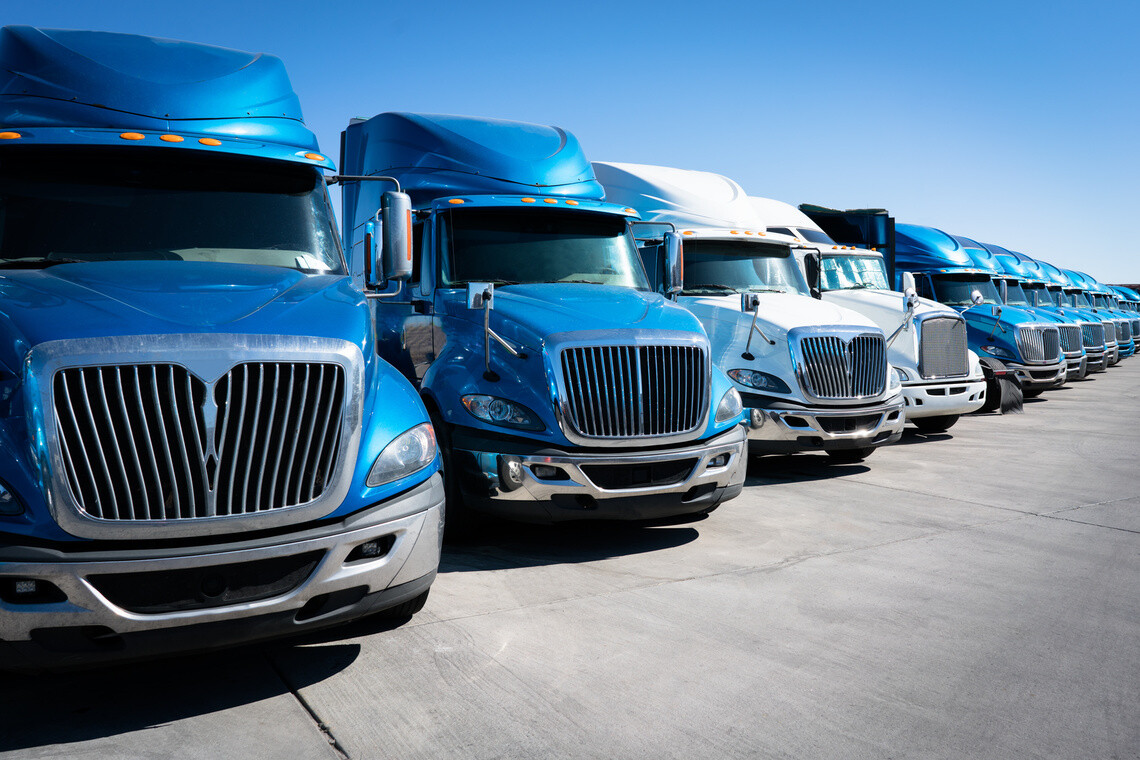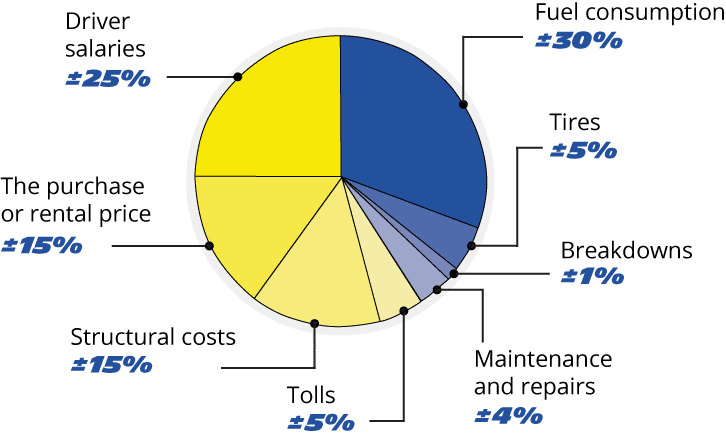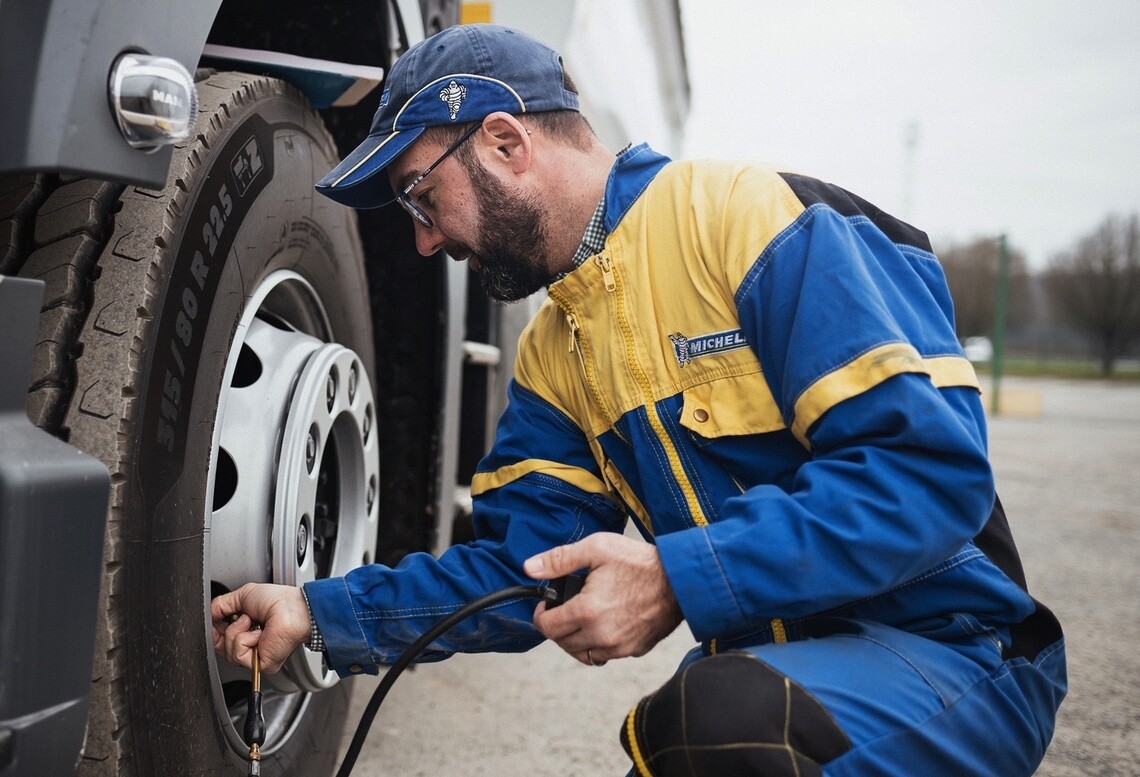
Fleet of semi-truck cabs
In the wake of major worldwide events over the past several years, fleet owners are contending with inflation, soaring fuel prices and considerable hikes in the cost of raw materials. All these factors drive up the Total Cost of Ownership, or TCO, of each truck. Tracking and reducing TCO is an excellent way to future-proof your fleet management ౼ and chances are, you’re already calculating it, even if you don’t know it!
What is TCO and is it relevant for all fleet models?
Regardless of fleet size, every fleet owner can benefit from tracking and optimizing Total Cost of Ownership, or TCO, to manage their business expenses. Once you’re able to understand the concept of TCO and accurately quantify it, the benefits will follow. While a trucking industry-wide TCO standard does not exist, most fleet owners tend to include the same costs in their calculation.
Zoom in on TCO[1]
The TCO of your truck considers several financial line items that you likely already track ౼ driver salaries, truck maintenance, fuel and fleet tire price, for example. When these operating costs are compiled with the vehicle purchase price and every other direct or indirect cost related to the vehicle over its entire lifecycle, that is TCO.

Total Cost of Ownership Pie Chart
Why should your company calculate TCO of your tire?
While it’s true that fleet tires represent just 5% of a truck’s overall TCO, they substantially impact several other areas. First, the real cost of tires is generally calculated by including the cost per mile, or the mileage, you can get out of each truck tire.
Choosing tires with better first life longevity and fitments that are retreaded tires for multiple lives in service, improves the cost and thus the overall TCO. But beyond that, in a market with fluctuating and higher than normal fuel prices, tires play a critical role in helping to reduce fuel consumption ౼ the second largest contributor to TCO.
Therefore, in most cases, choosing a cheaper tire with better cost per mile may cost less up front, but investing a little bit more for low rolling resistance tires that are high quality, for example, will lower tire TCO in the long run.
Why? Because the amount of money saved at the pump over time far exceeds initial savings.
To see how much you can save, use our fuel calculator!
TCO analysis: how does it work?
At Michelin, we calculate tire-related TCO as: the cost per mile plus its resulting fuel consumption. The latter is incredibly important to consider.
For example, with rolling resistance, the fact that a tire slows a vehicle down as it rolls over a surface, can account for as much as one-third of the fuel consumption required to travel from point A to point B. In other words, the higher the rolling resistance, the more fuel is needed and the higher the overall TCO. Therefore, choosing low rolling resistance tires can reduce tire-related TCO by as much as one-third.
In addition to impacting rolling resistance, taking TCO into account by investing in high quality tires can reduce truck breakdowns, downtime and associated costs, while also reducing truck maintenance and repair costs and even enhancing a fleet’s perceived image.
FAQ - Total Cost of Ownership
Overall truck TCO takes into account:
- • Driver salaries
- • The purchase or rental price of the vehicle
- • Structural costs
- • Fuel consumption
- • Fleet tires
- • Maintenance and truck repairs
- • Truck breakdowns
TIRE-RELATED TCO = FLEET TIRE COST + BREAKDOWNS + MAINTENANCE AND REPAIRS + FUEL COST DUE TO TIRE CHOICE
TCO looks beyond the purchase price of a vehicle or truck tire and considers every factor that directly or indirectly impacts costs related to the vehicle over its entire life cycle.
Whether you have one truck or a fleet of thousands, regularly tracking and analyzing TCO can help fleet owners select the most cost-effective offers, define the most pertinent strategy and improve business profitability.
Michelin ONCall Services
Check out Michelin ONCall services to help manage your TCO by getting preferred pricing and access to quality service with industry-leading roll time.

checking tire pressure
[1] Ducker worldwide report_ VEHICLE MAINTENANCE COSTS & PAINS_ Michelin Community – December 2017
[2] Understand the basis of TCO- Michelin White paper, P9







